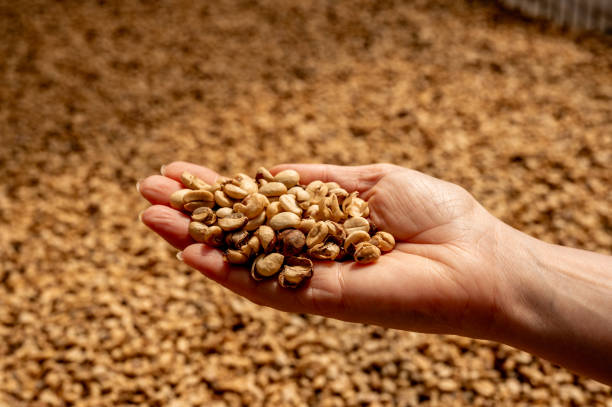Grain drying is a critical agricultural process in Ukraine, a major global producer and exporter of grains such as wheat, barley, and corn. The relevance of grain drying has become even more significant in the context of the ongoing war in Ukraine due to several factors:
1. Protection of Harvest Quality
Moisture Control: Grain drying is essential to reduce the moisture content of harvested grains, which prevents spoilage, mold growth, and mycotoxin contamination. In the war-torn areas, where storage facilities may be compromised, maintaining grain quality through effective drying is crucial to ensure food safety and marketability.
Extended Storage: Properly dried grains can be stored for longer periods, which is vital in a conflict scenario where transportation and logistics might be disrupted. This ensures that the harvested crops remain usable and saleable even if immediate export or distribution is not possible.
2. Economic Stability
Revenue Generation: Agriculture is a significant part of Ukraine’s economy. Ensuring that grain is dried and preserved allows farmers to sell their produce in both domestic and international markets, thereby sustaining their livelihoods and contributing to the national economy during wartime.
Market Access: Dried grains meet the quality standards required by international markets. In times of war, maintaining these standards is crucial for Ukraine to continue exporting and fulfilling international contracts, which are a major source of foreign currency.
3. Food Security
Domestic Supply: Properly dried grains help ensure a stable food supply for the domestic population. In wartime, ensuring that food reserves are in good condition and can last through periods of disruption is vital for national food security.
Aid Distribution: In conflict zones, dried grains are easier to transport and distribute as emergency food aid. Their longer shelf life and reduced risk of spoilage make them suitable for humanitarian relief efforts.
4. Operational Challenges
Infrastructure Damage: The war has likely damaged agricultural infrastructure, including drying facilities. This necessitates innovative and resilient solutions for grain drying, such as mobile drying units or community-based drying centers, to ensure that grain drying can continue despite infrastructure challenges.
Energy Supply: Grain drying requires significant energy, typically from fuel or electricity. The war has affected energy supplies and increased fuel costs, making traditional grain drying methods more expensive and challenging. This highlights the need for energy-efficient and alternative drying technologies.
5. Technological and Logistical Adaptations
Portable Dryers: In response to the destruction of fixed infrastructure, the use of portable grain dryers can be a flexible solution. These units can be transported to different locations as needed, ensuring that grain drying can continue even in areas where permanent facilities are not operational.
Alternative Energy Sources: Exploring renewable energy sources, such as solar-powered grain dryers, can mitigate the impact of fuel shortages and high energy costs. These technologies can provide a more sustainable and resilient approach to grain drying under wartime conditions.
6. Strategic Importance
Economic Resilience: By ensuring the grain harvest is properly dried and preserved, Ukraine can maintain a degree of economic resilience. Agriculture remains a cornerstone of the economy, and the ability to produce and export grains can provide financial stability during and after the conflict.
Global Food Supply: Ukraine plays a crucial role in the global food supply chain. Effective grain drying and preservation help mitigate the global food crisis exacerbated by the war. By maintaining its export capacity, Ukraine helps stabilize global grain markets and food prices.
Conclusion
The relevance of grain drying in the conditions of war in Ukraine cannot be overstated. It is crucial for protecting the quality of the harvest, ensuring economic stability, maintaining food security, overcoming operational challenges, adapting to new technological and logistical realities, and sustaining strategic importance in the global food supply chain. Addressing these aspects effectively can help Ukraine navigate the agricultural challenges posed by the ongoing conflict and contribute to both national and global food security.
